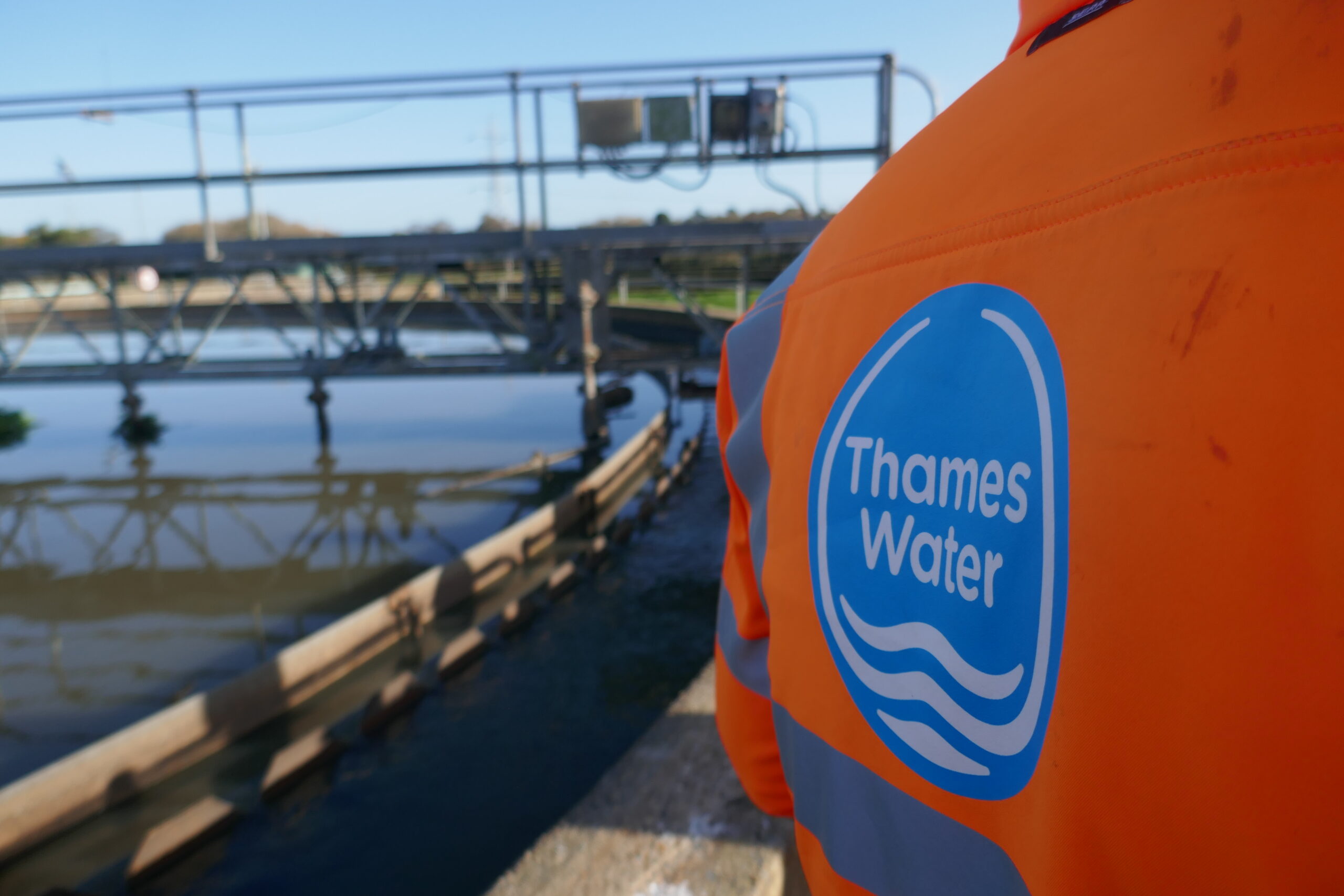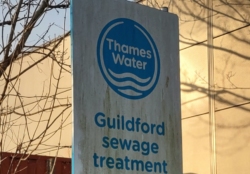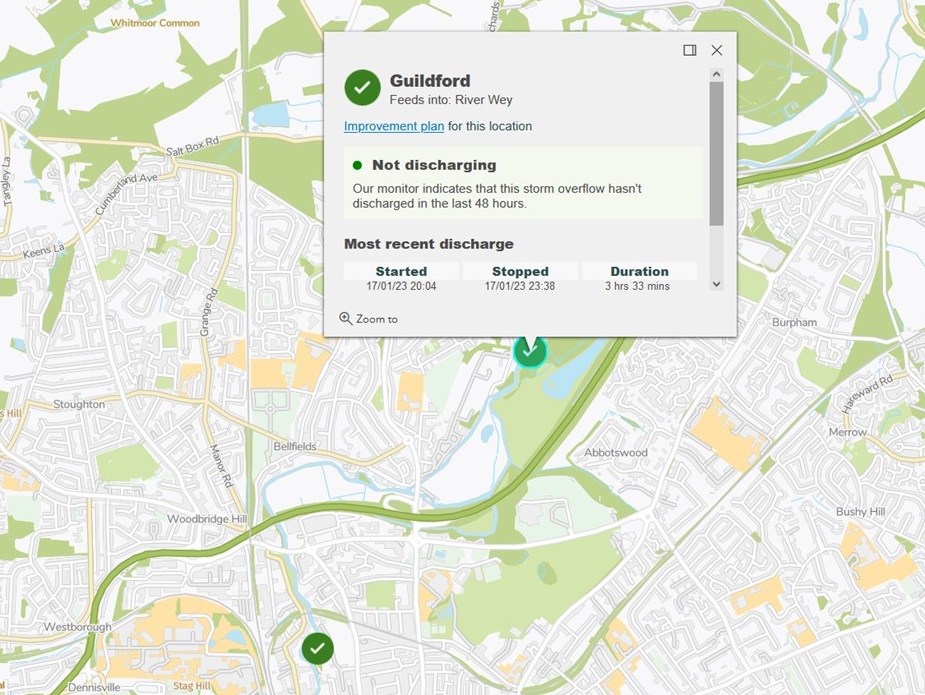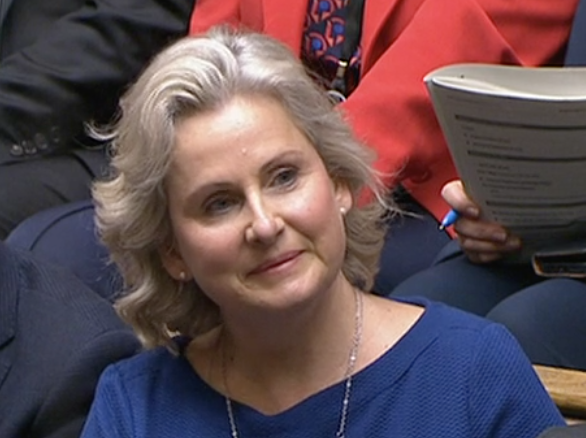 Abraham Lincoln
If given the truth, the people can be depended upon to meet any national crisis...
Abraham Lincoln
If given the truth, the people can be depended upon to meet any national crisis...
 Guildford news...
for Guildford people, brought to you by Guildford reporters - Guildford's own news service
Guildford news...
for Guildford people, brought to you by Guildford reporters - Guildford's own news service
Thames Water Says Sewage Spills ‘Totally Unacceptable’ But Admits Residents Will Pay
Published on: 26 May, 2023
Updated on: 26 May, 2023
By Hugh Coakley
The admission by water companies, including Thames Water, which provides water and sewage treatment works for Guildford, that bills could rise to deal with the untreated sewage spills into rivers and the sea was criticised by local politicians and environmental activists in Guildford who called for structural changes to the way they operated.

The existing Guildford sewage treatment works will be replaced by 2026 and will stop untreated discharges, says Thames Water.
In a statement to The Dragon, Thames Water said they regard “the discharge of untreated sewage to be totally unacceptable”. They continued: “We recently announced our plans to invest £1.6 billion on our sewage treatment works and networks over the next two years and are striving every day to reduce the discharge of untreated sewage into our rivers.”
Their statement made no comment on whether bills should rise to cover the extra works.
The new sewage treatment works (STW) at Slyfield, which is to be relocated at GBC expense to facilitate the 1,500 homes at the planned Weyside Urban Village, will be completed in 2026 and will stop untreated discharges into the Wey, said Thames Water.
A spokesperson for the utility company said: “The new STW will have increased storm water storage capacity compared to the existing STW (approximately 25 per cent more). There will be no discharges of untreated sewage into the River Wey.”
But Zoe Franklin, Lib Dem parliamentary spokesperson for Guildford, Cranleigh and our villages, accused Thames Water of having “underinvested in infrastructure for decades”.
She said: “A new sewage works at Slyfield is needed to ensure capacity as more homes are built and it may alleviate the longstanding fly and odour issues that residents suffer. However, it will not solve the problem of sewage overflow.”
She said the private water companies should be transformed into public benefit companies with stricter regulation on bonuses and environmental input on water boards. “Customers should not be footing the bill for water company failings, so alongside these reforms we are calling for a sewage tax on water companies’ profits to fund works.
“We need government action to hold water companies to account and ensure urgent behaviour. They have failed to act.”
Water Ranger volunteers based at Zero Carbon Guildford, Alan Thorogood and Sarah Davies, called for more enforcement of water quality monitoring and higher fines for untreated sewerage discharges and poor river water quality. They said: “It seems like common sense that water company dividends should be withheld, and bonuses and salaries should be capped until river water quality dramatically improves.”

Amanda Creese (Lab, Bellfields and Slyfield) “private investors continue to take their very large profits.”
Cllr Amanda Creese, (Lab, Bellfields and Slyfield) commented: “It is undoubtedly good news that we are getting a new sewage works for Guildford, and there will then be no excuse for further sewage discharges.
“Labour’s position has always been that privatising water services made no sense because there is no market. We don‘t actually have a choice as to where we get our water or which company disposes of the waste. So all we have done is create a system which makes large profits for private, often foreign, investors.
“This system means that we, the consumers, have to pay for decent sewage operations while private investors continue to take their very large profits.”
Green Party member Sam Peters said: “Water privatisation has been a total failure. We’ve seen sewage dumping soar while prices relentlessly increase.
“Since 2010, governments have watered down regulation repeatedly and cut Environment Agency funding by 80 per cent, causing a staggering 98 per cent drop in prosecutions.
“Shareholders have been handed a debt-funded £72 billion, with infrastructure investment plummeting. We now lose one trillion litres of water annually to leaks, with sewage dumped flagrantly in all weathers.
“The idea customers should bail out Thames Water, one of the worst offenders, is ridiculous. If they can afford billions in shareholder payouts and millions in bosses’ salaries, they can afford to maintain this basic service.
“A new Slyfield plant is welcome, but ultimately won’t solve the issue of water being run for profit, incentivising cost-cutting, price increases and sewage dumping as ‘the price of business’.
“Water is a natural monopoly. We can only end rampant sewage dumping, underfunding, and profit extraction at customer expense through nationalisation and we can only end attacks on regulation and regulators through change of government.”
Guildford’s MP Angela Richardson welcomed investment in Guildford’s water system to “help prevent future storm overflows into the River Wey”.
“This Conservative government is the first government to take action on sewage dumping. I am encouraged the government has a plan to combat water pollution and storm overflows without customer bills increasing significantly.
“The Storm Overflows Discharge Reduction Plan sets stringent targets for companies and a plan for investment. We’ve also introduced the linking of water company shareholder pay outs to company performance. Meanwhile, alternative proposals supported by the Liberal Democrats are simply unrealistic and would cost up to £ 593 billion, or £21,000 per household.
“Privatisation has delivered £170 billion of investment in the water industry, including over £ 30 billion towards fixing water pollution. My view and that of the government is that nationalising the water industry would place too much cost on the taxpayer, reduce investment and stifle innovation.“

Thames Water discharge data map (May 25 2023) showing untreated sewage was discharged into the Wey for 3.5 hours in January 2023.
There have been frequent raw sewage discharges into the Wey at Slyfield. The sewer overspilled into the river 27 times for 346 hours in 2020, 11 times for a total of 98 hours in 2021 and seven times for a total of 68 hours in 2022. There has been one untreated spillage this year in January lasting three and a half hours (see the Thames Water discharge data map).
The full statement from Water UK, representing the water companies, can be found here (May 18 2023).
We also asked R4GV and GGG to comment.
Responses to Thames Water Says Sewage Spills ‘Totally Unacceptable’ But Admits Residents Will Pay
Leave a Comment Cancel replyPlease see our comments policy. All comments are moderated and may take time to appear.

"Found any?" - "Nope, it all looks green to me!" (See Opinion: The Future is Congested, the Future is Grey)
www.abbotshospital.org/news/">





Recent Articles
- Latest Evidence in Sara Sharif Trial
- Ash’s New Road Bridge Is Named – and November 23rd Is Opening Day
- Class A in Underwear Leads to Jail Sentence
- Historical Almshouse Charity Celebrates Guildford in Bloom Victory
- Notice: Shalford Renewable Showcase – November 16
- Firework Fiesta: Guildford Lions Club Announces Extra Attractions
- Come and Meet the Flower Fairies at Watts Gallery
- Updated: Royal Mail Public Counter in Woodbridge Meadows to Close, Says Staff Member
- Letter: New Developments Should Benefit Local People
- Open Letter to Jeremy Hunt, MP: Ash’s Healthcare Concerns


Recent Comments
- Paul Spooner on Ash’s New Road Bridge Is Named – and November 23rd Is Opening Day
- Harry Eve on Opinion: The Future is Congested, the Future is Grey
- Nigel Keane on Letter: New Developments Should Benefit Local People
- Nathan Cassidy on Updated: Royal Mail Public Counter in Woodbridge Meadows to Close, Says Staff Member
- T Saunders on Opinion: The Future is Congested, the Future is Grey
- Jim Allen on Updated: Royal Mail Public Counter in Woodbridge Meadows to Close, Says Staff Member
Search in Site
Media Gallery
Dragon Interview: Local Artist Leaves Her Mark At One of England’s Most Historic Buildings
January 21, 2023 / No Comment / Read MoreDragon Interview: Lib Dem Planning Chair: ‘Current Policy Doesn’t Work for Local People’
January 19, 2023 / No Comment / Read MoreA3 Tunnel in Guildford ‘Necessary’ for New Homes, Says Guildford’s MP
January 10, 2023 / No Comment / Read More‘Madness’ for London Road Scheme to Go Ahead Against ‘Huge Opposition’, Says SCC Leader
January 6, 2023 / No Comment / Read MoreCouncillor’s Son Starts Campaign for More Consultation on North Street Plan
December 30, 2022 / No Comment / Read MoreCounty Council Climbs Down Over London Road Works – Further ‘Engagement’ Period Announced
December 14, 2022 / No Comment / Read MoreDragon Interview: GBC Reaction to the Government’s Expected Decision to Relax Housing Targets
December 7, 2022 / No Comment / Read MoreHow Can Our Town Centre Businesses Recover? Watch the Shop Front Debate
May 18, 2020 / No Comment / Read More










Daniel Andrew
May 28, 2023 at 9:14 pm
Angela Richardson appears to be confirming that water and wastewater companies have not been linking equity payouts with company performance up until this point. Which was the point of privatisation. Privatisation would bring efficiency savings, both customers and equity holders would reap the benefits.
Looking at Southern Water’s dividend policy you would see that equity payouts are principally linked to how much cash they can muster from customers and / or loans.
Indeed, look at the industry’s 30+ years since privatisation and you would see operational cash flow covers investment almost every year. Over the same period, borrowings equate very closely to shareholders’ payouts. Consider also that, upon privatisation, these newly-formed companies were granted all their assets, given public cash and had all legacy debt absorbed by the tax payer.
Now we’re also paying the interest on the loans they took out to pay themselves dividends.
Well, that’s really great that they will now link their pay to their performance. I wish we could believe it